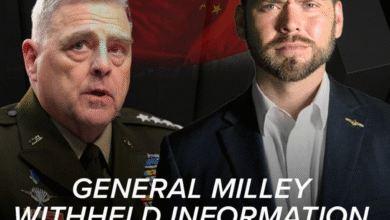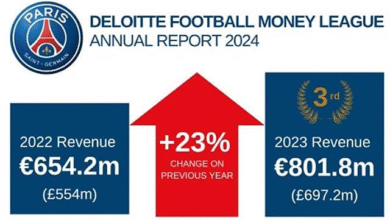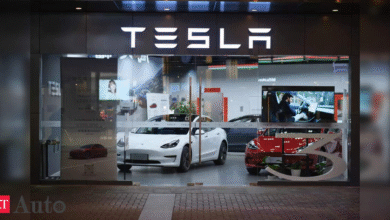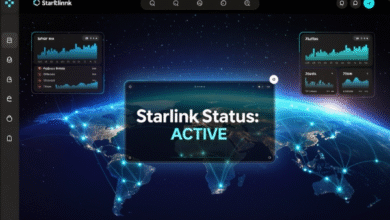Trump Criticizes Supreme Court and Celebrities Over Controversies
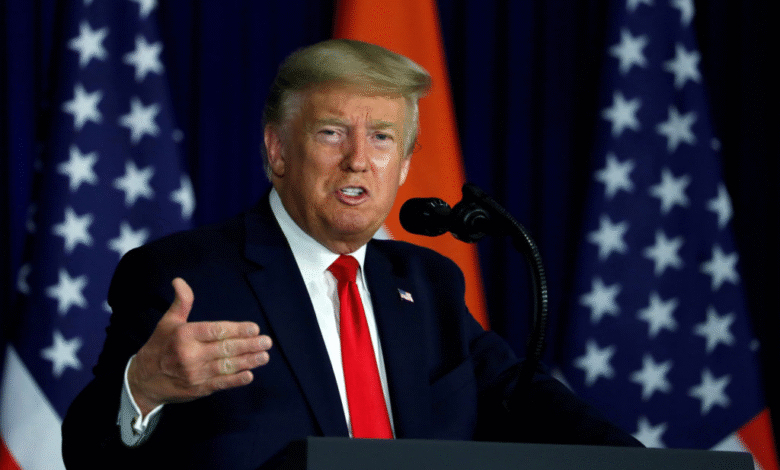
In a fiery display characteristic of his recent social media rants, Trump Criticizes Supreme Court, accusing it of being manipulated by the radical left during a contentious discussion surrounding his executive order aimed at ending birthright citizenship. The President’s comments came just as the Supreme Court heard oral arguments that could potentially uproot a long-standing legal precedent. Trump, expressing his frustration, also took aim at Republican lawmakers, labeling them as “grandstanders” who threaten his legislative agenda. Adding to the controversy, he targeted pop icons Bruce Springsteen and Taylor Swift, suggesting their political outbursts are out of touch with American values. This intersection of pop culture and politics amidst his criticisms underscores the tumultuous landscape Trump navigates as he seeks to galvanize support within his party and beyond.
In a recent twist in American political discourse, former President Donald Trump has been vocal about his discontent with the U.S. Supreme Court, portraying it as an institution unduly influenced by leftist ideologies. His recent comments reflect a growing tension within the Republican Party, as debates about birthright citizenship heat up in courtrooms and public squares alike. Beyond his legal challenges, Trump’s critiques extend to cultural figures, with harsh remarks aimed at celebrities like Bruce Springsteen and Taylor Swift, whom he believes have misaligned their artistry with political statements. This convergence of celebrity criticism and high-stakes legal battles illustrates a broader conflict over national identity and governance amidst rising social media fervor. Trump’s strategic use of public platforms to voice his frustrations highlights the unique fusion of entertainment and politics in today’s media landscape.
Trump Criticizes Supreme Court and Its Influence on His Policies
In a striking declaration, former President Donald Trump criticized the U.S. Supreme Court for allegedly being controlled by the radical left, accusing them of manipulating judicial proceedings to undermine his policies. During a recent address, he specifically targeted the Court’s skepticism towards his executive order aimed at ending birthright citizenship—a long-debated subject that has stirred both political and public interest. This criticism reflects Trump’s frustration with the institutional checks that challenge his legislative agenda, particularly his desire to consolidate power within the executive branch.
Trump’s outburst comes as no surprise, considering his history of berating institutions that oppose his views. He portrayed the Supreme Court as the battleground for radical leftists intending to delegitimize his presidency. Trump’s comments ignited discussions across social media and news outlets, particularly in light of the ongoing political implications surrounding birthright citizenship—involving the rights of individuals born in the U.S. to automatically gain citizenship. As the Court deliberates these grave implications, Trump’s rhetoric continues to amplify a narrative of resistance that resonates with his supporters.
Celebrity Backlash: Trump vs. Springsteen and Swift
The ongoing feud between Donald Trump and cultural icons like Bruce Springsteen and Taylor Swift offers a glimpse into the symbiotic relationship between politics and pop culture. Recently, Trump labeled Springsteen as overrated and criticized him for his political views, branding him an ‘obnoxious jerk.’ This is not the first time Trump has clashed with celebrities. His remarks about Swift emphasized her waning popularity since her endorsement of Kamala Harris—and as shocking as it was, it reflects Trump’s engagement with celebrity culture in his political narrative.
Trump’s social media rants, albeit controversial, resonate with his base who appreciate a president who fights back against Hollywood elites. By dismissing celebrities like Springsteen and Swift, Trump positions himself as the voice of the ‘ordinary American’ against what he considers left-wing tyranny within the entertainment industry. This dynamic of championing ‘common sense’ amidst celebrity criticism serves to bolster his popularity and maintain his foothold in the ever-evolving political landscape.
The Political Ramifications of Trump’s Social Media Rants
Trump’s recent social media rants highlight his confrontational approach to political discourse. His comments on the Supreme Court and critiques of prominent figures like Springsteen and Swift signal a personal strategy to mobilize his supporters against both institutional and cultural adversaries. By invoking terms like ‘radical left’ and portraying himself as a victim of a grand conspiracy, Trump continues to energize his base and inspire loyalty among followers who see these controversies as proof of a rigged system.
However, such a strategy also carries risks. The backlash from mainstream media and political groups may strengthen oppositional narratives against Trump’s administration. Critics contend that such incendiary rhetoric diverts attention from pressing legislative issues—like the contentious birthright citizenship debate. They argue that Republicans must navigate a tricky balance between appeasing Trump’s fervent supporters and courting moderate voters, whose opinions may be swayed by his relentless criticism of the Supreme Court and celebrity culture.
Birthright Citizenship: A Hot-Button Topic Amid Political Turmoil
The topic of birthright citizenship has emerged as a central theme in Donald Trump’s political narrative, especially following his criticism of the Supreme Court’s evaluation of his executive order. The longstanding policy—allowing anyone born in the U.S. to obtain citizenship—has become a flashpoint in the immigration debate, with Trump asserting that ending this policy is crucial for national security. His stance resonates deeply with his supporters, who believe in stricter immigration control and view birthright citizenship as a loophole that undermines American sovereignty.
As the Court weighs the merits of Trump’s claims, public opinions on birthright citizenship remain divided. Proponents argue that the policy is rooted in the foundation of American values, while opponents, including Trump, claim it incentivizes illegal immigration. This ideological clash not only fuels discussions about immigration reform but also showcases Trump’s ability to galvanize a segment of the population yearning for a return to what they perceive as traditional American values.
Trump’s Legislative Agenda: The Roadblocks He Faces
Despite Trump’s fervent calls for unification among Republicans to pass his sweeping legislative agenda, he faces considerable resistance within his party. The disorganization among the House Budget Committee members showcases the significant divide that exists, as multiple factions within the GOP question the viability of Trump’s broad tax cut proposals. This underlying discord threatens not just his personal legacy but also the party’s cohesion heading into future elections.
Trump’s insistence on a comprehensive legislative package, which includes controversial measures aimed at reducing immigration assistance for unauthorized immigrants, may alienate more moderate Republicans. Consequently, Trump’s visibility as a leader navigating through these legislative hurdles will be crucial in determining the success of his presidency. As he rallies his supporters through combative rhetoric, the ultimate challenge lies in translating these words into effective policy outcomes, ensuring that his base remains energized while keeping more centrist Republicans on board.
Public Response to Trump’s Celebrity Smear Campaign
Trump’s penchant for attacking celebrities and political opponents has sparked a lively public discourse. While his base interprets these tirades as necessary defenses against elitism, others view them as detrimental to civil political dialogue. Bruce Springsteen and Taylor Swift’s responses to Trump’s attacks have sparked discussions about the responsibility of public figures in political matters, further illustrating the intersection of celebrity culture and politics.
This evident clash between artists and politicians not only highlights personal rivalries but also reflects the broader societal divisions surfacing in contemporary America. As public sentiments evolve, the consequences of Trump’s celebrity smears may backfire, leading to stronger opposition from not just celebrity activists but also from the general populace who feel inappropriately representing American values.
Analyzing Trump’s Political Language: Strategy or Rant?
The language President Trump employs in his criticisms provides a clear glimpse into his political strategy. Phrases like ‘radical left losers’ or ‘grandstanders’ serve to define his adversaries in stark, combative terms, reinforcing his image as a fighter against perceived threats to American values. This combative tone is not merely rhetoric; it is part of a larger calculated approach to galvanize his base and foster a sense of urgency among supporters.
Yet, some analysts argue that such bombastic affirmations may also detract from substantial policy discussions and can trigger backlash among moderates. As the political landscape continues to shift, Trump’s ability to maintain this combative approach while addressing real issues will be pivotal in determining his efficacy as a leader moving forward in a polarized environment.
Cultural Commentary: Trump vs. the Entertainment Elite
Trump’s ongoing skirmishes with celebrities like Springsteen and Swift illuminate a critical dialogue within modern American culture. His outspoken criticism positions him as an anti-establishment figure opposing what he views as elite cultural narratives, particularly those that challenge conservative values. This facet of Trump’s personality resonates with a substantial portion of the electorate, which perceives themselves as sidelined by a self-important media and entertainment industry.
As Trump’s rebukes gain traction, they kindle a captivating yet fraught conversation about the influence of celebrity on political beliefs. It raises questions regarding the role of public figures in shaping political discourse and defies traditional norms about political engagement. The ongoing feud, while entertaining, underscores the deeper societal tensions that define the current political climate in the U.S.
Trump’s Legacy in the Age of Social Media
In the realm of social media, Donald Trump’s legacy is undoubtedly significant. His unconventional use of platforms like Truth Social and Twitter—a method of direct engagement with the populace—continues to redefine political communication. However, the fallout from his posts often manifests as substantial public debate and scrutiny, as his comments about institutions, legal matters, and cultural figures circulate and morph into viral discussions.
Trump’s approach serves as both a powerful tool for mobilizing his supporters and a double-edged sword, drawing criticism from opponents who argue that it undermines meaningful engagement in political discourse. As we navigate through a digitally dominated dialogue, the continued relevance of Trump’s methods will present a critical juncture, determining how future political figures communicate with constituents and approach contentious subject matters, including citizenship and cultural identity.
Frequently Asked Questions
What did Trump criticize about the Supreme Court regarding his citizenship policy?
Trump criticized the Supreme Court for being ‘played’ by the radical left during oral arguments related to his executive order to end birthright citizenship. He claimed that the court is being manipulated by those without public support to intimidate judges.
How did Trump respond to Bruce Springsteen’s comments about him?
In a social media rant, Trump dismissed Bruce Springsteen as ‘Highly Overrated’ and criticized him for speaking negatively about his presidency while abroad. Trump labeled Springsteen as a ‘pushy, obnoxious JERK’ and expressed that he never liked the singer’s music or politics.
Why did Trump mention Taylor Swift in his recent criticism?
Trump included Taylor Swift in his criticism by claiming that since he expressed his disdain for her support of his political rival, she ‘is no longer ‘HOT.’ This statement followed her endorsement of former Vice President Kamala Harris for the 2024 presidential campaign.
What other criticisms did Trump voice aside from those aimed at the Supreme Court?
Along with criticizing the Supreme Court, Trump expressed frustration towards Republican ‘grandstanders’ for obstructing his legislative agenda. He urged congressional Republicans to unite behind a significant tax cut bill to advance his policy goals.
What was the context of Trump’s criticisms during his recent Middle East trip?
Trump’s criticisms came during his return from a Middle East trip where he discussed business deals and received flattery from Gulf leaders. While abroad, he faced political challenges back home, particularly regarding the Supreme Court’s skepticism of his birthright citizenship order.
How might Trump’s remarks impact his relationship with GOP lawmakers?
Trump’s remarks about GOP ‘grandstanders’ and his urgent call for unified action may create tensions with Republican lawmakers, particularly those resistant to his proposed tax cuts and needing to negotiate within their party.
What role does public opinion play in Trump’s critique of the Supreme Court?
Trump suggests that the Supreme Court’s decisions are influenced by public sentiment and radical left intimidation, indicating that he believes a lack of public support for these influences could sway judicial rulings.
How did Trump link his social media posts to his legislative agenda?
Trump used his social media posts to interconnect his criticism of the Supreme Court with his broader legislative agenda, urging Republicans to support a comprehensive tax bill to counter what he views as Democratic obstruction.
| Key Points |
|---|
| President Trump criticizes the U.S. Supreme Court for being manipulated regarding his executive order on birthright citizenship. |
| He condemns Republican lawmakers for attempting to obstruct his legislative agenda. |
| Trump lashes out at Bruce Springsteen for his political stance and claims he is overrated. |
| He dismisses Taylor Swift, suggesting her popularity has declined since her political endorsement against him. |
| Trump emphasizes needs for congressional unity to pass his tax cut proposal. |
| His posts reflect growing challenges as he returns focus to domestic political issues. |
Summary
Trump criticizes the Supreme Court as part of his escalating political confrontations. In a series of social media posts, he voiced strong discontent with the judicial body regarding its handling of his executive proposals, while also targeting fellow Republicans and public figures. This reflects his ongoing battle to maintain influence and push through his legislative priorities amidst increasing opposition.

